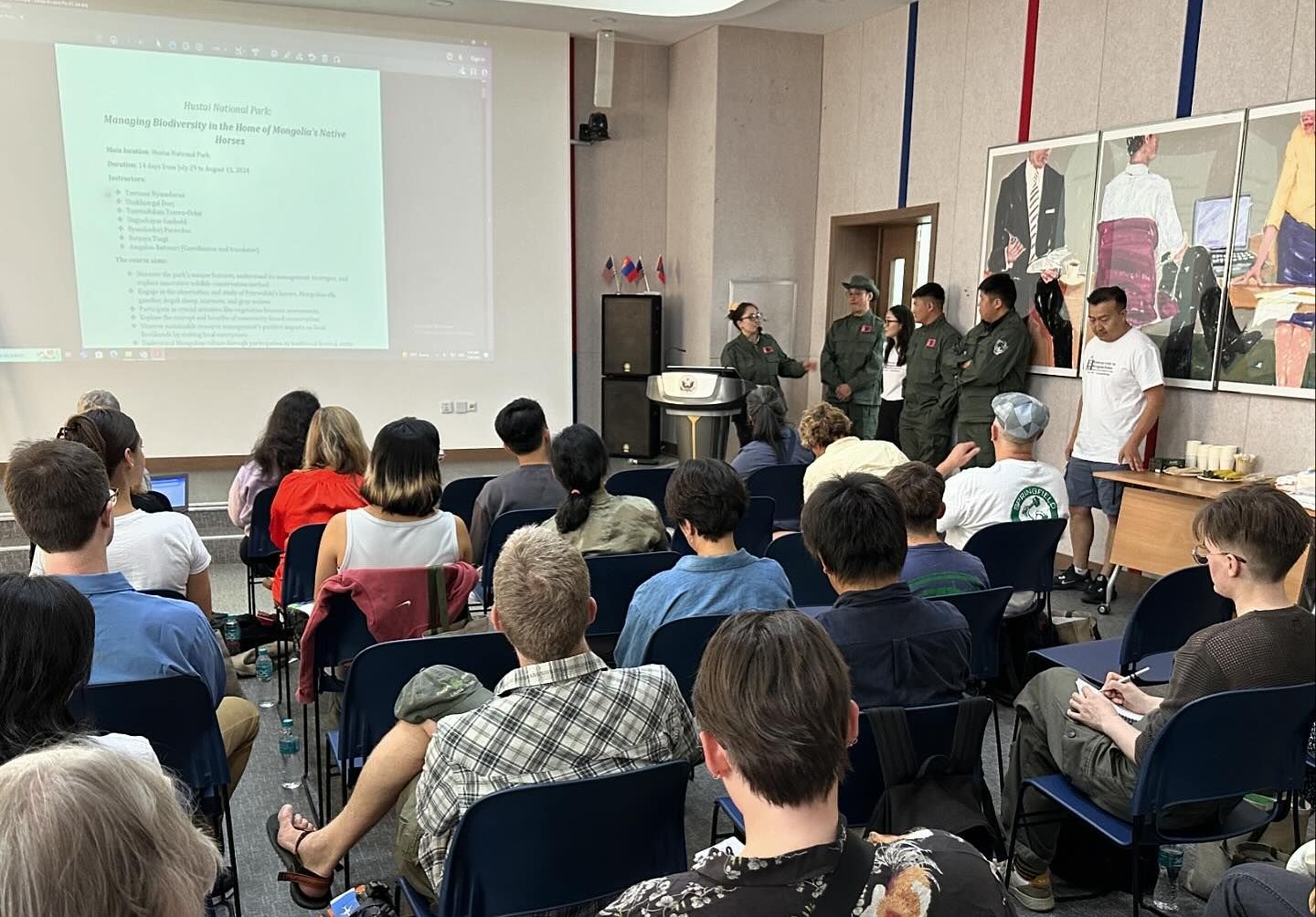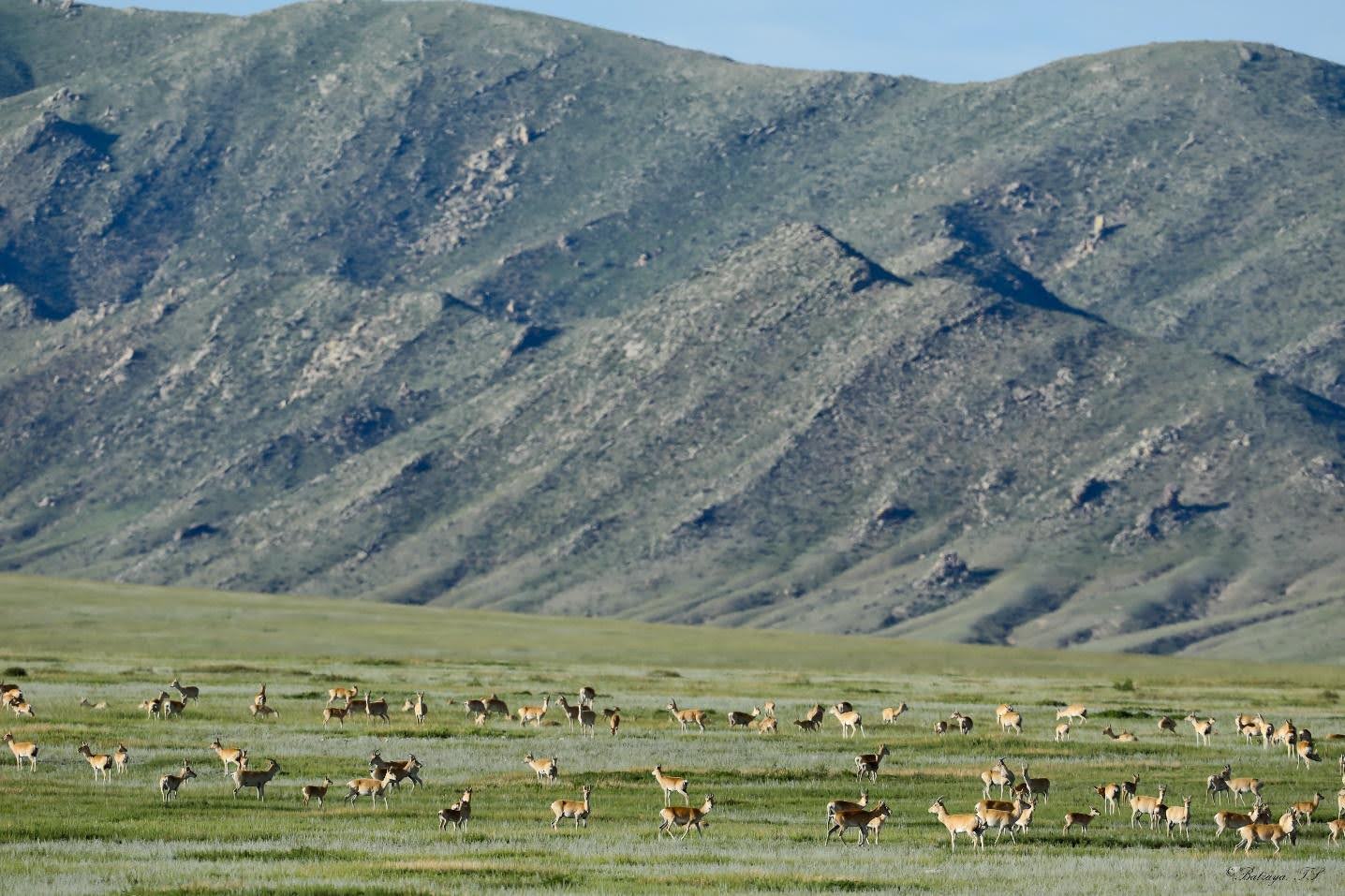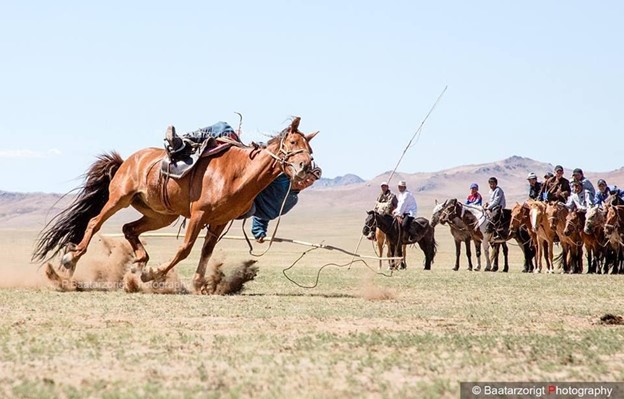Hustai National Park: Managing Biodiversity in the Home of Mongolia’s Native Horses
14 Days ◦ 6 Instructors and Support Staff
No Prior Experience Required. All instruction will be in English
Dates: June 9-June 22, 2025
Tuition and Fees: $3,500 (US/International), ₮1`200`000 (Mongolian)
Embark on an intensive two-week expedition immersing yourself in Mongolia's cutting-edge efforts to establish and manage specially protected areas, centered around the globally acclaimed Hustai National Park. The park is home to one of the few remaining thriving herds of the world's last truly wild horses, the Przewalski's horse. This immersive field course resonates with the urgent call from the International Union for Conservation of Nature, highlighting the imminent threat of land degradation primarily caused by agricultural and forestry practices. This degradation imperils landscapes, biodiversity, and essential ecosystem services like carbon sequestration. Hustai National Park serves as a pivotal bastion in combating these detrimental impacts, forming the nucleus of our investigation.
Course Overview
Journey deep into the heart of Hustai National Park, a thriving ecosystem boasting remarkable biodiversity and groundbreaking conservation initiatives. Unveil the park's unique features, unravel its intricate management strategies, and delve into innovative wildlife conservation methodologies. Through hands-on fieldwork, engage in the observation and study of Przewalski’s horses, along with other awe-inspiring species such as Mongolian elk, gazelles, Argali sheep, marmots, and gray wolves. Participate in crucial activities like vegetation biomass assessments, refining your skill in ecological research techniques to effectively collect and analyze crucial data supporting conservation endeavors.
Digging deeper, we will explore the concept of community-based conservation, examining its profound implications within both the park and its adjoining buffer zone. Witness firsthand the positive outcomes of sustainable resource management on local livelihoods by visiting local enterprises, including eco-tourism enterprises, community-scale cheese factories, and sustainable sea buckthorn horticulture operations. These activities will serve to demonstrate and reinforce the importance of implementing community-based, ecologically informed rangeland management for safeguarding biodiversity and sustainability.
This expedition will also transcend scientific exploration, offering a rich cultural immersion experience. Engage in a plethora of cultural immersion experiences, from participating in traditional festivals to exploring the Mongolian Natural History Museum. Immerse yourself in the daily lives of herder families, partake in cultural activities such as horse and camel riding, traditional food preparation, and indulge in traditional games, unraveling the essence of Mongolia's ancient traditions and heritage. Witness innovative solutions in action through a visit to the Mongolian Bankhar Dog Breeding Project, showcasing a traditional approach to combat desertification and conserve vital grasslands.
This course caters to academics focusing on protected area studies, natural sciences professionals, national and provincial park administrators and managers, members of non-governmental environmental and conservation organizations, and enthusiastic members of the lay-public who wish to get an insider’s view of what makes Mongolia so special on the world stage and also contribute to conservation efforts. Join us in unraveling the intricate balance between conservation, cultural heritage, and sustainable livelihoods amidst Mongolia's awe-inspiring landscapes.
Anticipated Course Activities
Day 1
June 9
Day 2
June 10
Day 3
June 11
Day 4
June 12
Day 5
June 13
Day 6
June 14
Day 7
June 15
Day 8
June 16
Day 9
June 17
Day 10
June 18
Day 11
June 19
Day 12
June 20
Day 13
June 21
Day 14
June 22
Instructors

Dr. Tsermaa Nyamdavaa

Dr. Tserendulam Tseren-Ochir

Batzaya Tsogt

Amgalan Batsuuri (Coordinator and Translator)

Dr. Usukhjargal Dorj

Uuganbayar Ganbold

Byambadorj Purevdoo
Testimonials
















